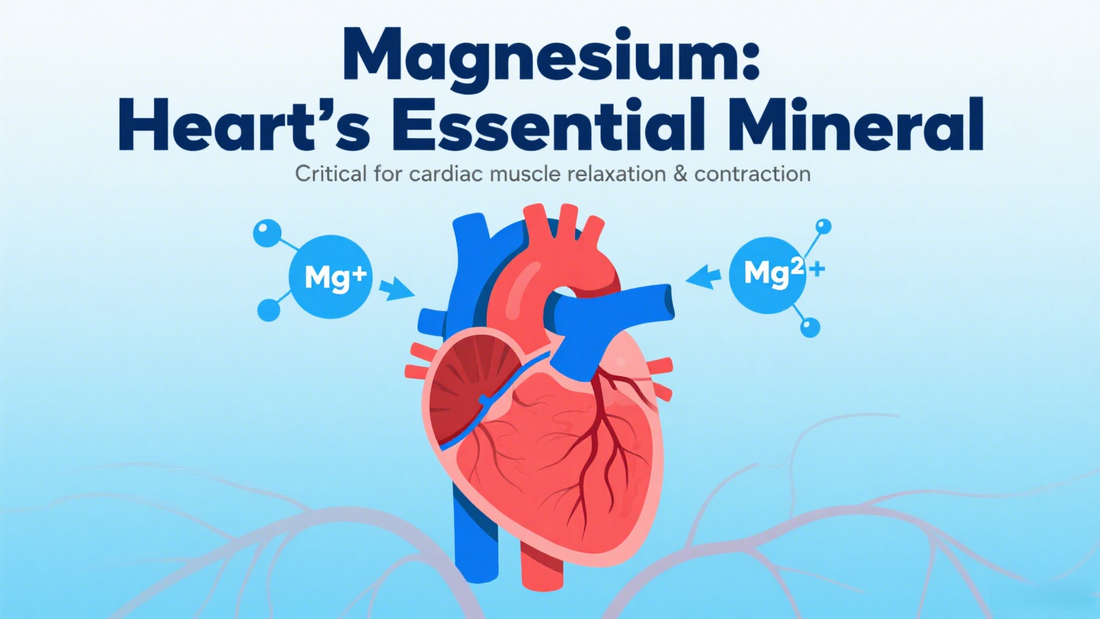Magnesium: The Heart's Best Friend You Might Be Missing

When it comes to keeping your heart happy and healthy, most people think about cutting down on salt, eating more veggies, or getting in a daily walk. And yes — all of that is important. But there's a silent hero in the heart health game that doesn't get nearly enough attention: magnesium.
So, why does your body need magnesium? Think of it as your heart's personal rhythm coach. Magnesium helps regulate the electrical signals that keep your heartbeat steady and strong. Without enough of it, your heart can start acting up — and not in a romantic way. We're talking about irregular heartbeats, palpitations, and even a higher risk of serious heart issues.
Magnesium also plays a big role in keeping your blood pressure in check. It helps your blood vessels relax, which means your heart doesn't have to work overtime to pump blood through your body. Over time, that can lower your risk of a heart attack or stroke. Basically, it's like giving your heart a much-needed vacation every single day.
Here's the tricky part: even though magnesium is found in foods like spinach, almonds, black beans, and pumpkin seeds, most Americans still aren't getting enough. In fact, studies show that over half of adults don't hit the recommended daily intake — about 310–320mg for women and 400–420mg for men.

Why? Well, our modern diets are part of the problem. We eat more processed food than ever before, and processed foods are pretty much magnesium-free. Plus, stress, too much caffeine, alcohol, or intense workouts can all drain your body's magnesium levels. So even if you're eating “healthy,” you might still be coming up short.
The signs of low magnesium can be sneaky — things like muscle cramps, fatigue, anxiety, or trouble sleeping. But your heart feels it too, even before you notice anything's wrong. That's why getting enough magnesium every day is so important for long-term heart health.
If you want to boost your magnesium levels, start by adding more magnesium-rich foods to your meals: throw spinach into your morning omelet, snack on a handful of almonds, or sprinkle pumpkin seeds on your salad. But here's the truth — for many people, diet alone still isn't enough. That's where a high-quality magnesium supplement can really make a difference.
If you want to protect your heart, don't just think about cardio workouts and leafy greens. Think magnesium. Your heart will thank you — every single beat of the way.
